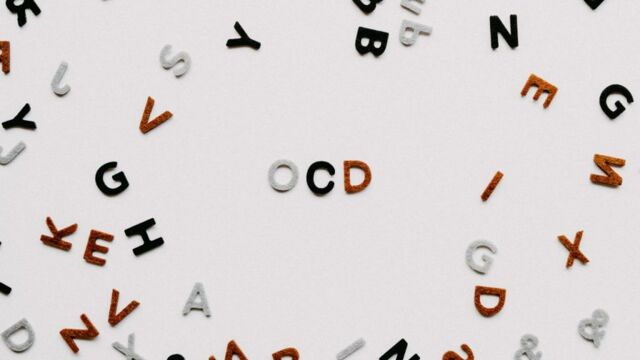Obsessive Compulsive Disorder (OCD) is a mental health condition that can be divided into two main parts: obsessions and compulsions.
Discover our latest podcast
Obsessions include intrusive and unwelcome thoughts, images, urges, worries, or doubts that frequently pop into your mind and can make you feel very anxious. On the other hand, compulsions are repetitive activities that you do to reduce the anxiety caused by the obsession.
Many people may experience minor obsessions and compulsions. It’s when they start to impact your daily life that it becomes a problem.
Signs of OCD
According to theAmerican Psychiatric Association, some examples of obsessions include:
- Fear of getting contaminated by people or the environment
- Fear of blurting out obscenities or insults
- Extreme concern with order, symmetry, or precision
- Fear of losing or discarding something important
- Disturbing sexual thoughts or images
- Recurrent intrusive thoughts of sounds, images, words, or numbers

Some examples of compulsions include:
- Excessive or ritualised hand washing, showering, brushing teeth, or going to the toilet
- Repeated cleaning of household objects
- Repeatedly checking locks, switches, or appliances
- Ordering or arranging things in a particular way
- Repeated counting to a certain number
- Constantly seeking approval or reassurance
What causes OCD?
It is not knownexactly what causes OCD but according to the NHS and WebMD, the following are risk factors that may play a role:
- Family history i.e. if one of your family members has OCD
- Physical differences in certain parts of the brain
- Other mental health disorders such as depression, anxiety, or tics
- Life events such as experience with trauma or a history of physical or sexual abuse
- Personality: neat, meticulous, methodical people with high personal standards may be more likely to develop OCD
Read more:
⋙ Imposter syndrome: Do you suffer from it?
⋙ This is your personality based on your birth order
⋙ What your eye colour says about your personality
How do you treat it?
The most common and effective treatments for OCD are Cognitive Behaviour Therapy (CBT) and/or antidepressant medicines called selective serotonin re-uptake inhibitors (SSRIs).
If you are suffering from OCD, please see your doctor or mental health professional.














